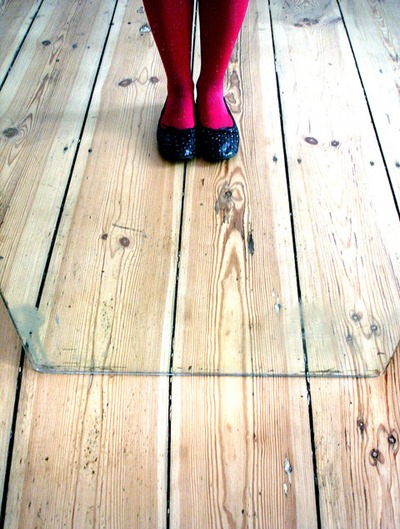If You Want to Cure Anxiety, Let Go of Negative Assumptions
Yesterday, a Brazilian friend of mine asked me to write about anxiety. She has suffered from it for a long time. When she faces with a difficult situation, sometimes it’s hard even to breathe. She imagines bad scenarios in her head and gets panicky. She knows that anxiety doesn’t help find the right solutions. So she often counts her breath or go for a walk. Afterwards, she realizes there was nothing to be worried about.
I noticed that she kept saying sorry in the message she sent to me. “Sorry If I wasn’t clear enough!” “I thought this might be an interesting topic. Sorry if it’s not!”
There she was, again, my dear friend getting anxious about my reply and how I might think about her message. My guess is that she – unconsciously in a swift of nanosecond – assumed that the topic wouldn’t interest me, that I would be bothered by her request. As a result, she felt a wash of shame and guilt. This compelled her to say sorry. While she was writing to ask for help to cope with anxiety, anxiety was all over her.
“Stop saying sorry for being yourself. I’ll write about this tomorrow.” I wrote back.
Anxiety, if not being cured, becomes this destructive monstrous creature that eats away our life. Many people lives in a state of anxiety so constantly that they consider it normal. Life is like that, no choice. But I believe differently.
If you have been following Life Written, you may have read – to my surprise – its most shared article If you Want to be Happy, Don’t Take Anything Personally. I take from this reaction of readers that this is the pain strongly shared by many. Taking things personally is the root of almost for every miseries in our life, including anxiety. That’s why it is vital for us to learn to never take anything personally.
In this article, let us look at another root of anxiety: negative assumptions.
I used to be very afraid of letting lost. If I had to drive somewhere far away from my neighborhood, I would get panicky. I would be anxious all the way, which – I didn’t know this at the time – made it easier for me to get lost. Because in my mind, before I even started the engine of my motorbike and hit the road, I was already lost.
I learned this small trick: to stay calm and positive about finding the place. “Everything is good. The road is good. I am finding my way. I am going to arrive on time without any problem.” I would say to myself. I realized that without the non-stop drama in my head, I could pay way more attention to the turns, the directions, the scenery, the street names. I was learning directions! I was making the right turn! My intuition was cooperating!
Of course, I do get lost from times to times. So what? If I am lost, I am lost. That’s all. I look at my map, I ask for direction, I find my way out. There is no reason to be panicky. Since then, I’ve gotten lost much less and navigated much better, through both the streets and my life.
We have been taught to believe that negative equals realistic and positive equals unrealistic.
Susan Jeffers
Positive affirmations instead of negative assumptions is something we human have a hard time to understand. Our animal survival instinct, which has been wired in our brains for millions of year, compels us to imagine threatening scenarios instead of positive one. Given 100 times doing something, should we fail 1 time, we tend to hold on to that 1 time.
We waste so much energy and time dealing with the negative assumptions – all created by ourselves, and exist only in our head.
“They will reject my application.” “I will get lost.” “The meeting will suck.” “My readers will hate this article.” “He doesn’t love me any more.”
And worse, we believe they are true! So we create the whole war game to deal with a problem that is outside of our control and probably does not at all exist.
We get lost in our personal melodrama, feeling victimized. Meanwhile, not a damn work gets done.
From driving the motorbike, to applying for the working visa and start a new job in other country - having ass constantly kicked by the new employer and neck constantly lengthen by the Embassy (the case of my Brazilian friend), say to yourself:
“Everything is good. I’m doing my best every second. Life unfolds to my best interest.”
And goes on doing your work. If there is nothing can be done for this situation, that’s it. You’ve done your best. Now go have some tea. Or continue your next good work. There is nothing worth stressing over.
There is nothing worth stressing over.
You can understand this statement fully only when you know how anxiety and stress break not only your mind, but also your body.

Over a period of time, stress depletes us and can develop into autoimmune dysfunctions, adrenal burnout, chronic pain, and diseases of the heart – even cancer. Stress can kill if it is left unchecked. … Fear interrupts growth mechanisms and weakens the immune system. Stress promotes unhealthy chemistry in the body.
Liana Werner-Gray, The Earth Diet
There are many cases of people curing themselves out of cancer simply by letting go stress. Look death in the face, their seat of consciousness shifted. The crucial project isn’t that crucial, the important business obligations aren’t that important, and the urgent to-dos list is urgent to somebody else but them. They realize that nothing is worth stressing over. Banishing all nonsense in their life, they begin to do what they love: paint, write, travel the world, volunteer to feed the hungry or help the poor. Family and friends think they are crazy. Somehow, their cancer goes into remission.
Maybe we need to be diagnosed with cancer to let go of the intoxication of stress, so as to live life courageously. But maybe we don’t.
Maybe with time, we learn to keep our head up, and smile, and breathe through our education in the University of Hard Knocks. So that we can learn from whatever lesson the Head Master in the sky deems we’re ready for.




